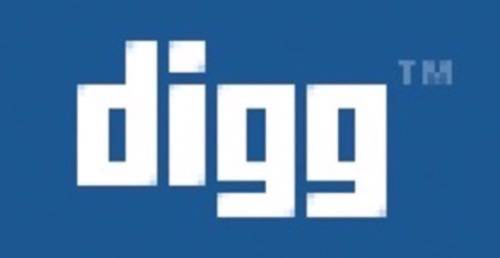Digg’s Jay Adelson has an interview in today’s London Guardian that includes a few interesting nuggets concerning the future of the site. Yet more social features are coming and further integration of Digg functionality into other sites around the web is likely but complicated.

Adelson told the Guardian that in addition to the forthcoming Images section of Digg, the increased engagement that’s come from enhancing user profiles has also created the conditions that will allow for recommendations and alerts to be offered. Recommendations and alerts would be a huge value ad for this Digg user.
Numbers
It’s hard to talk about Digg without at least wondering about numbers.
Adelson says Digg now receives 21 million unique visitors per month, has 2 million registered users and sees about 20% of users submit, digg or comment on stories. The engagement percentage is clearly a broad estimate, as only registered users can submit, digg or comment on stories and the entire number of registered users is only 10% of monthly visitors.
Buttons distributed around the web to submit a story or vote on Digg currently get about a billion impressions a month, he said. In case you’re curious – one billion “digg this” button clicks by 21 million unique visitors to the site per month equals about 45 clicks per month or an average of one and a half every day. Obviously some of you are going nuts with your button clicking.
Networking
In the interview he emphasized that social networking around content was of increasing importance. “Obviously some people are hoping for the opportunity for the return traffic,” Adelson said, “but I think that more powerful is the sharing component of what’s going on. When you click that Digg button you’re sharing it with your buddies and your social network within the Digg community.”
Adelson said the company has only done about 15% of what it wants to with the site UI and I would contend that there’s a whole lot more work that needs to be done before the new social networking capabilities are truly valuable to users. Sharing a story through a “shout” for example, results in such a maddeningly vague email that I’ve come to resent the feature and have decreased my use of Digg.
Free Digg Software for Other Sites? Eh, Maybe
The Guardian pressed Adelson on the question of white labeling Digg’s software, and Adelson made vague statements about giving it away for free to other sites covering other verticals. Digg’s value, Adelson said, is in its audience – which is clearly technology focused. While the company does want to facilitate niche content-oriented sub-social networks on Digg, the prospect of enabling Digg functionality on other sites is interesting as well.
While the open source Pligg does this already, it’s unclear whether their respective black box algorithms are comparable. On Digg at least not all votes are equal and the presumably dynamic algorithm that determines the relative impact of votes is essential for keeping Digg users honest.
It’s that algorithm that provides a disincentive for a small group of users to try to game the service – if their votes on one item are received poorly by the larger collective of users, for example, or a pattern of voting blocs and single domain voting emerges, then those users’ votes lose impact in the future. Under the covers there’s probably a lot of value in those calculations, as well. If Digg makes a major push to take its functionality to other sites, even for free, I would expect it to look most like Google’s emerging OpenSocial strategy – all things are open, as long as they go through us.
Lessons learned? Digg is a serious media business that plans on making some big plays in the future. What those will be is still very unclear – but hopefully the story recommendation engine will launch soon.









